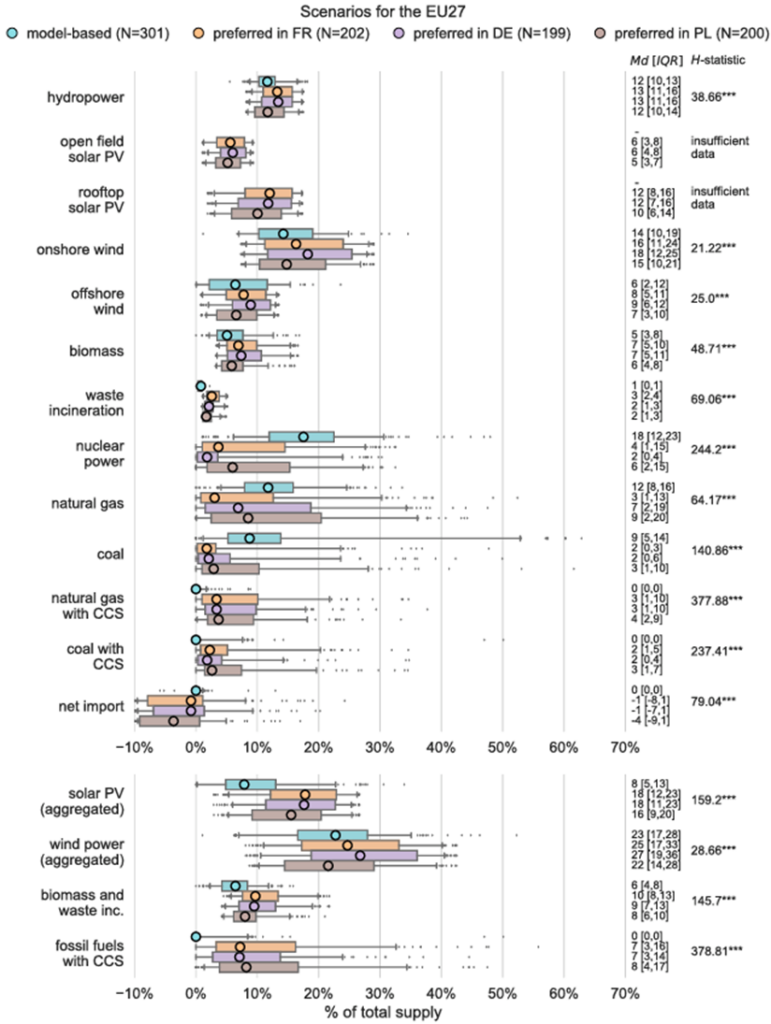Valeria Sorgato, UNIGE
Integrated assessment models and energy models are commonly used by decision-makers to guide policies on how to tackle climate change. These models help answer critical questions such as how to avoid surpassing 1.5°C of global warming at the lowest cost. They also help to develop detailed scenarios for transitioning electricity and whole energy systems, which often include additional targets on renewable generation or phasing out nuclear power. However, these models presumably reflect the viewpoints of their developers, such as finding the “cheapest” pathway, which might not always align with the broader public’s preferences. Stakeholder and public involvement in scenario development has been argued to be crucial for socio-political feasibility and policy acceptance, but direct public participation is challenging to achieve due to the need for specialized expertise, significant costs, and time constraints.
As a consequence, studies have shown discrepancies between model-based electricity scenarios and public preferences. For example, Xexakis and Trutnevyte (2020) found that the public in France, Germany, and Poland showed different priorities and acceptance levels of renewable energy source, nuclear power, and fossil fuels with carbon capture and storage compared to model-based scenarios for the European Union’s electiricity supply. In contrast to the scenarios, most Polish and German citizens preferred a deeper decarbonization for their national electricity supply, while French citizens preferred a deeper denuclearization.

Fig. 1 Comparison of annual electricity supply for 2035 in the EU27 between model-based and citizens’ preferred scenarios according to Xexakis and Trutnevyte (2020).
In PRISMA, one of the aims is to explore avenues to better integrate public preferences into the modeling of mitigation scenarios. We plan conducting representative online surveys in the highest emitting EU countries (France, Germany, Italy, Spain, Netherlands, and Poland) to understand which mitigation pathways the public favors, including preferred technologies, lifestyles, and policies. By investigating the acceptability of various mitigation measures, we seek to ensure that model-based scenarios more accurately reflect the public’s views, hopefully leading to more widely supported climate strategies.
This news is part of a project that has received funding from the European Union’s Horizon Europe programme under grant agreement No 101081604 – PRISMA.
Views and opinions expressed are however those of the speaker(s) only and do not necessarily reflect those of the European Union or the European Climate, Infrastructure and Environment Executive Agency (CINEA). Neither the European Union nor the granting authority can be held responsible for them.
